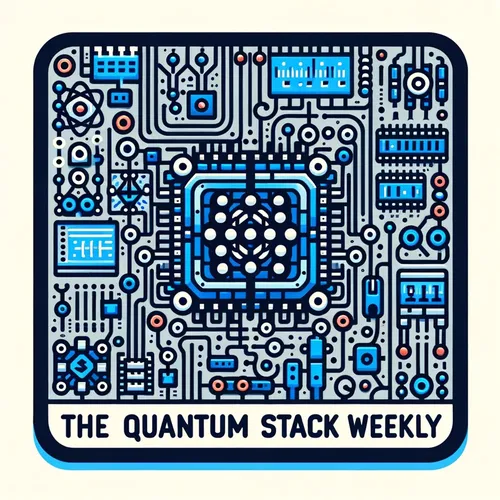Quantum Leap: HyperQ Unveils Virtualized Quantum Computing at Columbia Engineering
- Author
- Quiet. Please
- Published
- Wed 13 Aug 2025
- Episode Link
- https://www.spreaker.com/episode/quantum-leap-hyperq-unveils-virtualized-quantum-computing-at-columbia-engineering--67356888
This is your The Quantum Stack Weekly podcast.
Suddenly this morning, the hum in the Columbia Engineering quantum lab seemed to vibrate at a new frequency—one that’s rippling across every corner of The Quantum Stack Weekly. I’m Leo, your Learning Enhanced Operator, and today I’m not here to discuss the promise of quantum computing. I’m here because, as of the past 24 hours, that promise just became a new reality.
Let’s get right to it. Yesterday, Columbia Engineering unveiled HyperQ—a genuine leap in quantum computing usability. Until this breakthrough, even the world’s most advanced quantum machines, with all their shimmering shields and blinking dashboards, could only run a single program at a time. Million-dollar hardware would idle for hours, waiting in line for its next grand experiment. But HyperQ has done for quantum what virtualization did for the classical cloud: now, multiple users can simultaneously access and run independent programs on a single quantum processor.
If you’re picturing the control room at Columbia—picture rows of cryostats, clouds of supercooled helium, and engineers watching state vectors cascade across a dozen screens. It’s the modern equivalent of a symphony hall: but, until now, only one musician could play at a time. With virtualization, the entire orchestra starts to play—each researcher with their own quantum melody. Tao, Columbia’s principal investigator, summed it up best: this changes the game for tackling some of the world’s thorniest problems.
What does that mean for you, for industry, for the world? Queues at quantum cloud providers like IBM and Google just shortened dramatically. Researchers optimizing molecules for next-gen batteries, startups hunting new drug candidates, or banks refining portfolio risk models—all of them can now access powerful quantum resources more efficiently, expediting cycles of discovery. This leap doesn’t just save precious clock time and reduce costs; it also spreads access to quantum's magic beyond exclusive corners of national labs and tech giants.
Let’s stretch the metaphor a little—look at the global energy grid or the complex logistics during this summer’s extreme weather disruptions. Quantum machines, working in parallel through virtualization, can now model countless permutations of these snarled networks at speeds that rival the unpredictability of the storm itself. Whereas classical computers navigate a maze one corridor at a time, virtualized quantum systems stride down every path at once, leaping through possibility space with the uncanny grace of superposition.
Of course, there are still challenges ahead: scaling up error-corrected qubits, integrating post-quantum cryptography for security, and managing the immense energy hunger of new data centers. But with breakthroughs like HyperQ, we edge closer to the point where quantum isn’t just a speculative tool but the industrial backbone for genuine transformation.
I’ll leave you with a parallel: Just as quantum entanglement mystified Einstein, so too does quantum progress sneak up on us—spooky, fast, and world-changing. Thanks for listening, and as always, if you have questions or want a topic covered on air, drop me a line at [email protected]. Don’t forget to subscribe to The Quantum Stack Weekly. This has been a Quiet Please Production. For more information, visit quietplease.ai.
For more http://www.quietplease.ai
Get the best deals https://amzn.to/3ODvOta
